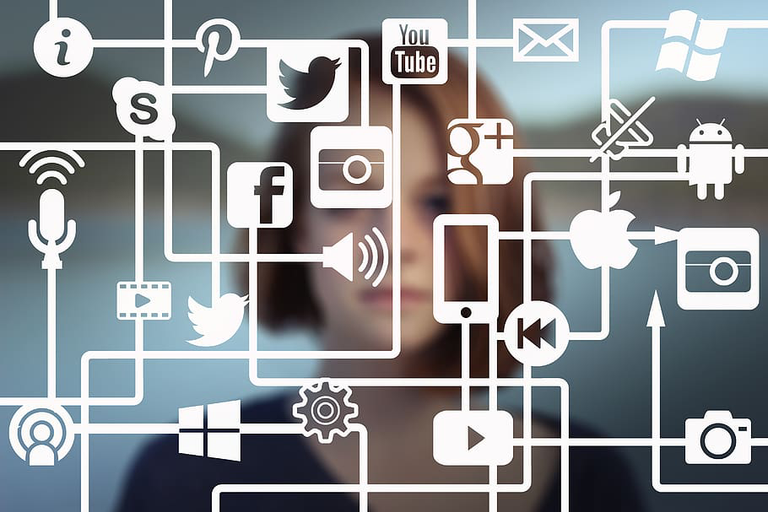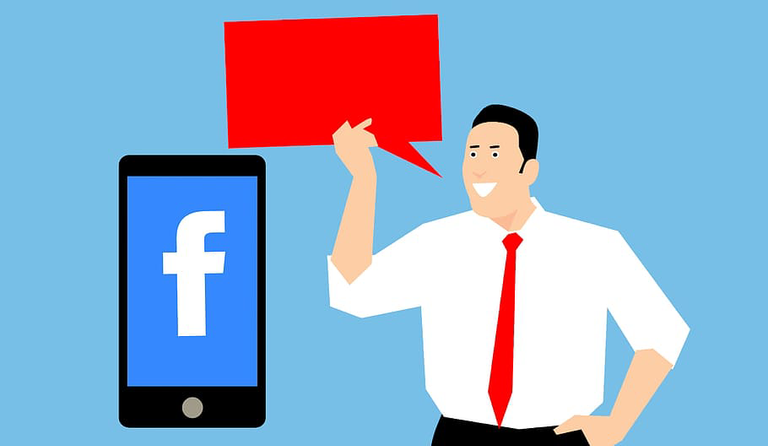Your mental wellbeing and Social media

Greetings, dear readers! let's discuss an issue that many of us in the digital era deal with: the effects of excessive social media use on mental health. I mean, I love social media just as much as other people, but new studies have shown that it may have negative effects on our mental health. Let's investigate the intriguing relationship between our online personas and mental health as we go on an enlightening journey together. I assure you that it's an exhilarating experience you won't want to miss!
Consider the following scenario: On any given day, you find yourself going through your preferred social media account to catch up on images, postings, and the most recent information from both friends and influencers. Everyone has experienced getting absorbed in a never-ending barrage of content and feeling a part of a virtual world where everyone's life appears to be picture-perfect.
However, have you ever given any thought to how our own mental health is affected by this continual exposure to perfectly manicured lives? Social media has a negative aspect that we can't ignore, even while it presents amazing chances for communication, self-expression, and knowledge sharing.
Recent research has shown a strong link between poor mental health outcomes and excessive social media use. Scrolling through our feeds may seem like an innocuous activity, but it can unintentionally exacerbate emotions of loneliness, anxiety, despair, and even low self-esteem.
In actuality, social media has the ability to skew how we perceive the world. It's simple to get sucked into the comparison trap while scrolling through filtered images of influencers appearing to be living their best life. We could start to doubt our own achievements, looks, and general level of satisfaction, wondering why our lives don't live up to the picture-perfect highlight reels we see on the internet.
Moreover, our thoughts may become overwhelmed by the constant barrage of ideas and information. We are inundated with news all the time, both positive and negative, which can make us more stressed and anxious. Feelings of pressure to appear flawless, stay up to date with the always evolving social media scene, and gain likes and followers may be extremely taxing and unsettling.
Nevertheless, there is hope for this voyage, my dear readers. To raise awareness, it's critical to highlight these effects, but it's just as vital to investigate ways to keep a positive relationship with social media.
We will explore the significant effects of excessive social media use on different facets of our mental health in the section that follows. We'll also look at doable strategies and tactics for maintaining a positive balance in our online life. From establishing limits and engaging in mindful browsing to discovering passions offline and fostering real relationships.
Get set, friends? Let's get going!
Welcome to the first part of our trip, in which we will examine the ways in which social media feeds the false sense of perfection and how it affects our mental health. There's no denying that social media is overrun with carefully selected posts that highlight people's lives. From immaculate selfies to holidays that look like pictures, it's simple to fall victim to this delusion.
It might make us feel inadequate to always be surrounded by these seemingly flawless lifestyles, as though our own experiences and accomplishments aren't good enough. We must constantly remind ourselves that the content we consume on social media is frequently a selected and filtered representation of reality. People frequently post their most joyful memories, Photoshopped images, and meticulously constructed stories, which might skew our sense of what is realistic and possible.
Remember that everyone experiences hardships and vulnerable moments that are not documented and shared publicly as we go through our feeds. We must constantly remind ourselves that we are viewing a sliver of a person's life, not the entire landscape.
It's critical to develop a positive mindset when using social media in order to safeguard our mental health. The first and most important thing is to practise self-compassion. Recognise that everyone experiences ups and downs in life, embrace your own journey, and enjoy your victories.
Let's examine the risk of comparison syndrome, which is frequently triggered by social media. It's simple to get caught up in the trap of comparing ourselves to others as we scan through our feeds. We start comparing our level of happiness, prosperity, and looks to those flawlessly manicured lifestyles we see online.
The fact is, nevertheless, that joy is stolen by comparison. Comparing oneself to others all the time is a toxic habit that can be detrimental to our mental health. We find ourselves feeling jealous, insufficient, and undeserving rather than concentrating on our own blessings and advancement.
We must constantly remind ourselves that everyone of us is travelling a unique path if we are to break free from this vicious circle. Everybody has unique abilities, successes, and skills. Instead of focusing on how we stack up against others, let's celebrate each other's accomplishments and work on improving ourselves personally rather than being intimidated by them.

Establishing boundaries on social media can help protect our mental health. The temptation of always being connected might make it challenging to take a break from social media and carve out personal time. Setting up sensible boundaries is essential, though, if you want to keep your connection with these platforms in check.
Establish time limits: Set aside specified times during the day to utilise social media. Putting your phone away for the remainder of the day after setting aside 30 minutes each morning and evening to go through your feeds is an easy approach to do this.
Establish phone-free zones: Set aside specific locations or periods of time for using your phone. For better rest and sleep, you may, for instance, designate your bedroom as a tech-free area.
Curate and unfollow accounts: Invest some time in unfollowing accounts that bring you down or evoke bad feelings. As an alternative, choose accounts to follow that will elevate, inform, and inspire you.
Engage in mindful scrolling: Make an intention before aimlessly perusing through your social media feeds. Remember to keep an eye on your feelings and responses while you use these sites. If you find yourself getting negative or comparing yourself to others, stop and shift your attention to something more gratifying and pleasant.
By establishing boundaries, selecting our favourite posts, and looking for deep connections, we may use social media to our advantage and improve our mental health. with the intention of turning off social media and making time for ourselves. Setting up sensible boundaries is essential, though, if you want to keep your connection with these platforms in check.
Establish time limits: Set aside specified times during the day to utilise social media. Putting your phone away for the remainder of the day after setting aside 30 minutes each morning and evening to go through your feeds is an easy approach to do this.
Establish phone-free zones: Set aside specific locations or periods of time for using your phone. For better rest and sleep, you may, for instance, designate your bedroom as a tech-free area.
Curate and unfollow accounts: Invest some time in unfollowing accounts that bring you down or evoke bad feelings. As an alternative, choose accounts to follow that will elevate, inform, and inspire you.
Engage in mindful scrolling: Make an intention before aimlessly perusing through your social media feeds. Remember to keep an eye on your feelings and responses while you use these sites. If you find yourself getting negative or comparing yourself to others, stop and shift your attention to something more gratifying and pleasant.
Consider your use of social media and how it affects your mental health on a regular basis. If needed, modify your usage, and keep looking for strategies to promote a positive balance between the virtual and real worlds.
Through the practise of honesty, gratitude cultivation, and moderation in our social media usage, we may effectively utilise these platforms to promote our mental health. Recall that social media may be an effective instrument for inspiration and connection, but we must utilise it with awareness and consciousness. In the actual world as much as the digital one, you have the ability to create an enjoyable and rewarding experience.
References
- https://bmcpsychology.biomedcentral.com/articles/10.1186/s40359-023-01243-x#:~:text=Excessive%20use%20has%20increased%20loneliness,self%2Desteem%20%5B9%5D.
- https://www.helpguide.org/articles/mental-health/social-media-and-mental-health.htm
- https://www.mcleanhospital.org/essential/it-or-not-social-medias-affecting-your-mental-health
- https://www.ncbi.nlm.nih.gov/pmc/articles/PMC10129173/
- https://www.medicalnewstoday.com/articles/social-media-and-mental-health
- https://www.frontiersin.org/articles/10.3389/fpsyg.2020.01949/full


Dear James!
I agree with you! 😄
How are you?
After seeing you, my mother said that you were chosen to be the servant of Jesus even before you were born!😄
Daalụ!
Hahaha, my warm regards to your family 😂
Thanks for your contribution to the STEMsocial community. Feel free to join us on discord to get to know the rest of us!
Please consider delegating to the @stemsocial account (85% of the curation rewards are returned).
You may also include @stemsocial as a beneficiary of the rewards of this post to get a stronger support.
I completely agree. Social media can also have a detrimental impact on our mental wellbeing. It's so easy to get caught up in comparison, feeling inadequate, or constantly seeking validation through likes and comments. It's important for us to recognize the negative effects and take steps to protect our mental health. Setting boundaries, taking breaks, and being mindful of the content we consume are crucial. Let's prioritize our mental wellbeing over the constant need for online validation.
That's it buddy. Sometimes, it's ok to stay off Social media and face the real world.